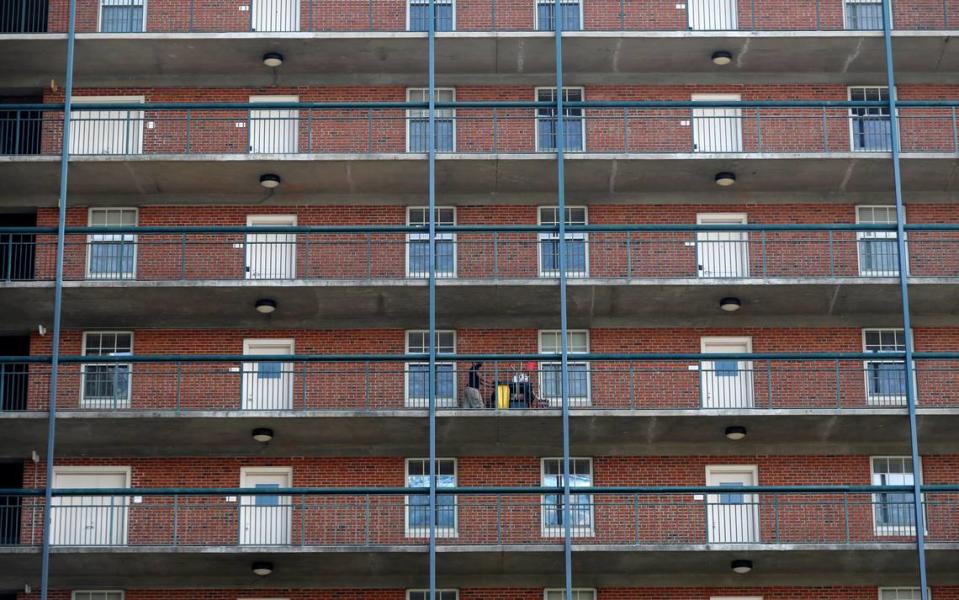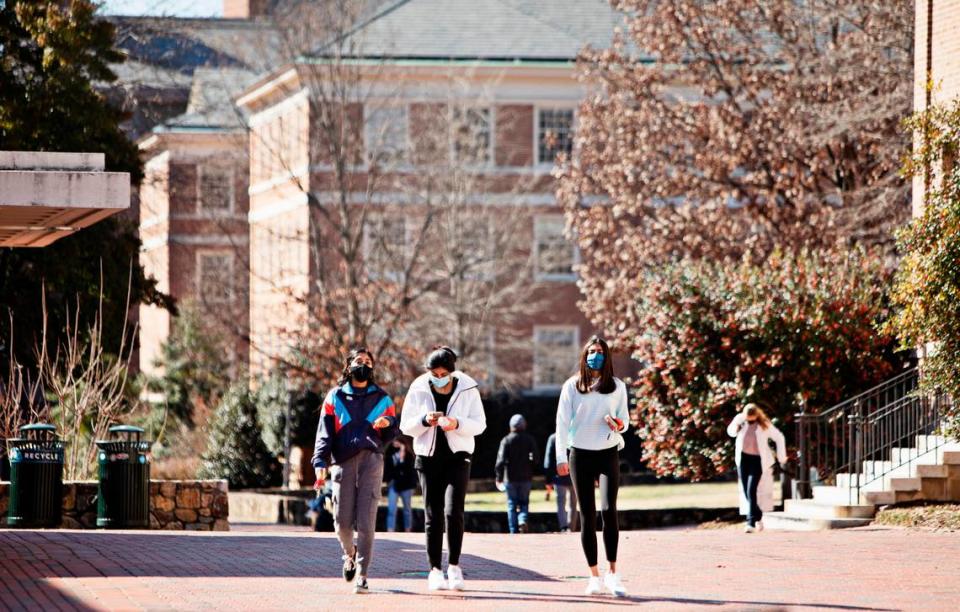NC university workers happy to be vaccine eligible, ready to get to ‘place of normalcy’
North Carolina college and university employees, as well as students working on campus, are eligible for COVID-19 vaccines starting Wednesday.
Gov. Roy Cooper announced Tuesday that front-line essential workers, including college and university instructors and support staff, would be eligible a week earlier than expected, now that three COVID-19 vaccines are available.
Employees who are working in-person at their place of work, including staff who anticipate an imminent return to an in-person work setting, can make an appointment at any vaccination site in the state.
Tracy Harter, a housekeeper who works in UNC-Chapel Hill dorms, said she plans on getting vaccinated as soon as she can make an appointment.
“It gives that added layer of protection for ourselves,” Harter said. “And to protect the individuals around us, our coworkers, the students and our family.”
Harter said it’s her patriotic duty to get vaccinated, and she hopes she can set an example for her coworkers or others who are hesitant.
“It helps the country move forward,” Harter said. “And it helps the university get to a place where we can get to a place of normalcy.”

University employees now eligible
Some university faculty have been teaching online throughout the fall and spring semesters. But most housekeepers, food service workers and those managing campus facilities have never been able to work remotely and have been concerned about their safety on college campuses.
Those employees who have continued to come to campus throughout the pandemic will feel much safer if they can get vaccinated, said Shayna Hill, the chair of the employee forum at UNC-Chapel Hill.
“To live with having to go in and interact with people when you don’t know the cautions or precautions they’ve been taking adds an element of anxiety to an already really, really hard situation,” Hill said. “We need to look after the folks that have the most risk.”
UNC-CH is working with UNC Health to register all of its employees within the state’s COVID-19 Vaccine Management System, which is required for vaccination.
If someone receives a paycheck from the university, that person will be automatically registered into the system, according to an announcement from UNC. That includes postdoctoral researchers, teaching assistants and research assistants.
“It’s good for the community, it’s good for the individual and it’s good for the university,” UNC-CH Faculty Chair Mimi Chapman said. “The more people on our campus that are vaccinated, the more likely it is that we can have the kind of fall semester we want to have.”

Some students eligible for vaccines
Any undergraduate or graduate student worker who receives a paycheck from UNC-CH or a has a work study position will also be registered with the state.
Zofia Knorek, a graduate student worker at UNC-CH, said the university already enrolled her in the system and she’s excited about the opportunity for employees to get vaccinated soon. It’s made her and her partner, who is a K-12 teacher, feel much safer.
“I think it comes on the wings of a really dark winter,” Knorek said. “As spring sort of starts to emerge, I think we’re just feeling a lot better about being in the workplace with the protection of a vaccine.”
Knorek is also the president of the graduate worker chapter of North Carolina Public Service Workers Union UE150. She said the single-dose option from Johnson & Johnson is particularly helpful for employees who have families, limited transportation and tight schedules because they won’t need to get to a vaccine clinic twice.
Student workers who are volunteers and currently working in person are also eligible for a COVID vaccine, but they must register themselves before making an appointment.
Students who are essential workers at off-campus jobs at restaurants, grocery stores and pharmacies are also eligible for the vaccine under Group 3.

Universities open vaccine clinics
N.C. State University expects to begin distributing vaccines on campus the week of March 22 at Talley Student Union.
All faculty, staff and students who want to be vaccinated at NC State can preregister and make appointments beginning the week of March 8. The university is highly encouraging all eligible members of the NC State community to get vvaccinate, but it is not required.
Across the state, UNC System campuses are helping distribute COVID-19 vaccines and some have set up vaccination clinics, particularly aimed at reaching undeserved communities.
North Carolina A&T, UNC Asheville, UNC Pembroke and Western Carolina University are all running vaccine clinics on campus.
Winston-Salem State University is partnering with Novant to vaccinate the community, and Appalachian State University is about to open its clinic operation.
UNC-Chapel Hill is not a vaccine provider itself, but a mass vaccination site at UNC-CH’s Friday Center is a critical part of the state’s efforts.

